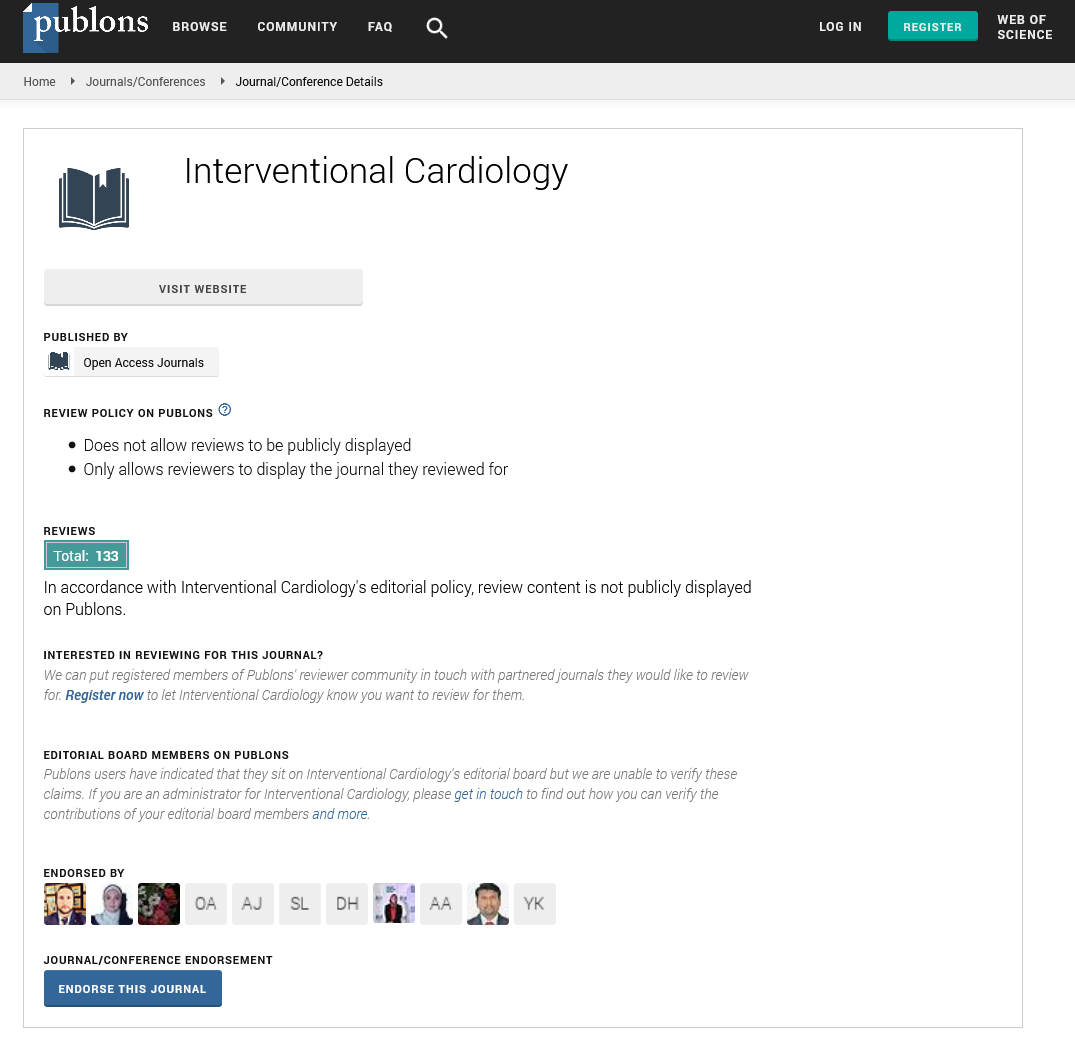Research Letter - Interventional Cardiology (2010) Volume 2, Issue 2
Acute coronary syndrome: choice of antiplatelet agent
- Corresponding Author:
- Pranab Das
Assistant Professor, Department of Internal Medicine, Division of Cardiology
University of Tennessee Health Sciences Center, 1211, Union Avenue, Suite 340 Memphis, TN 38104, USA
Tel: +1 901 448 5750
Fax: +1 901 448 1123
E-mail: pdas@uthsc.edu
Abstract
Study question
Among patients with acute coronary syndrome undergoing invasive strategy, is ticagrelor better than clopidogrel as an antiplatelet agent?
Methods
The Platelet Inhibition and Patient Outcomes Trial (PLATO) was a multicenter, double-blind, placebo-controlled, randomized trial where ticagrelor (180 mg loading dose, 90 mg twice daily thereafter) was compared with clopidogrel (300–600 mg loading dose, 75 mg daily thereafter for 6–12 months) for the prevention of cardiovascular events in 18,624 patients admitted to hospital with an acute coronary syndrome, with or without ST-segment elevation. At randomization, an invasive strategy was planned for 13,408 patients (72%) of the total 18,624 patients. All patients were also given aspirin. The primary end point was a composite of death from cardiovascular causes, myocardial infarction or stroke at 12 months after invasive strategy. Inclusion criteria for patients with non-ST elevation acute coronary syndromes were at least two of the following: ST segment depression or transient ST elevation of at least 1 mm in two or more contiguous leads, positive biomarkers (Troponin T or I, CK-MB) or one of the following risk indications: aged 60 years or over; previous myocardial infarction or coronary artery bypass grafting; coronary artery disease with 50% or more stenosis in at least two vessels; previous ischemic stroke, hospital-based diagnosis of transient ischemic attack, 50% or more carotid stenosis, or cerebral revascularization; diabetes mellitus; peripheral arterial disease; or chronic renal dysfunction (creatinine clearance <60 ml/min). The inclusion criteria for patients with ST elevation myocardial infarction were persistent ST elevation of at least 0.1 mV in two or more contiguous leads or new left bundle branch block, and the need for primary percutaneous coronary intervention (PCI). The main exclusion criteria were contraindication to clopidogrel, treatment with fibrinolytic drugs within 24 h before randomization, need for oral anticoagulant drugs, an acute complication of PCI (index event), PCI carried out after the index event but before first dose of study drug, increased risk of bradycardic events and concomitant use of strong CYP3A inhibitors or inducers.
“Ticagrelor is better than clopidogrel for patients with acute coronary syndromes undergoing invasive strategy.”
Results
A total of 6732 patients were randomized to ticagrelor, and 6676 patients to clopidogrel. The primary end point occurred in 9% with ticagrelor, and 10.7% in clopidogrel at 12 months (hazard ratio [HR]: 0.84; 95% CI: 0.75–0.94; p = 0.0025). Total major bleeding occurred in 11.6% with ticagrelor versus 11.5% with clopidogrel (HR: 0.99; 95% CI: 0.89–1.10; p = 0.8803). The global use of strategies to open occluded arteries (GUSTO) severe bleeding occurred in 3.2% with ticagrelor versus 2.9% with clopidogrel (HR: 0.91; 95% CI: 0.74–1.12; p = 0.3785).
Conclusion
Ticagrelor is better than clopidogrel for patients with acute coronary syndromes undergoing invasive strategy.
Clinical perspective
Ticagrelor appears to be a better alternative to clopidogrel as it causes fewer adverse cardiac events (death, myocardial infarction or stroke) while not causing any increased risk of bleeding. This agent offers a better safety profile compared with prasugrel, another newer thienopyridine that when compared against clopidogrel caused increased bleeding in certain subgroups.

